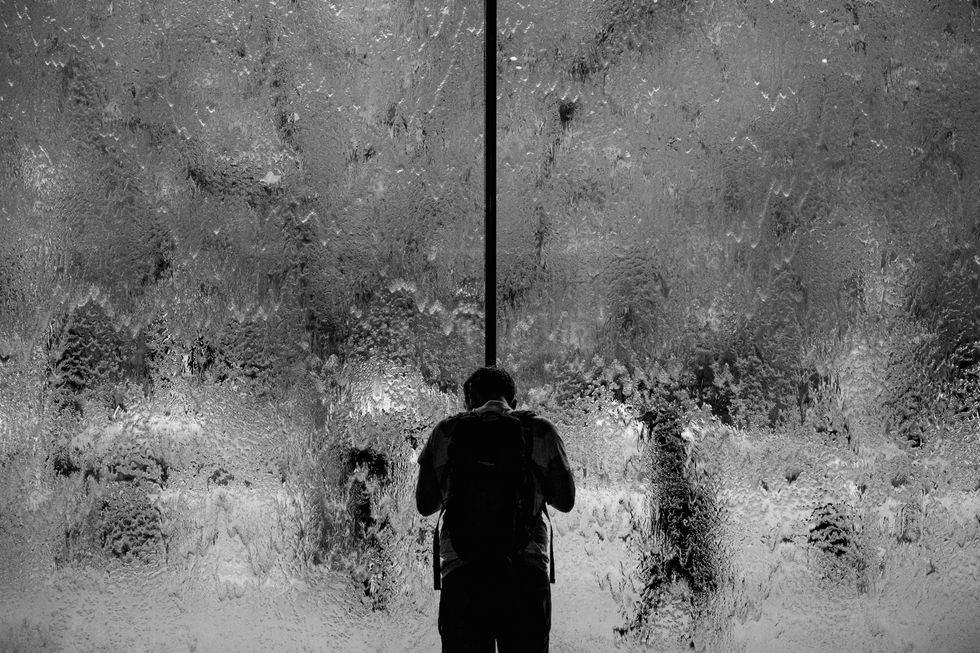Is Benjamin Netanyahu Really Down for the Count?
Though he's been left for dead before, some pundits warn to not bet against the current prime minister.
As one of America's chief allies and one half of the two peoples struggling in the yet unresolved Israel-Palestine conflict, Israel's politics are frequently of interest to the world, even beyond the outsized influence that the relatively small country produces.
And as such, when news struck that Benjamin Netanyahu had failed to secure enough seats to form a government after last April's elections (in which his Likud Party won 35 seats) ears perked up.
Combined with the scandalizing news of charges of bribery and other high crimes and misdemeanors being brought against the current prime minister, the pundits are quick to say it: this might in fact be the end of Bibi.
Of course, as the New York Times points out, that's been said before, particularly where, in parliamentary government, heads of state can cycle through many iterations of power based on ebbs and flows in different electoral cycles. In all, stability can be hard to find. The British are discovering that the hard way this month as well, with current PM Theresa May announcing her resignation.
And yet, in a system that is seemingly built for greater changeover and broader dialogue owing to its multiparty composition, the Israeli government has had one constant factor over 13 of the last 23 years: Netanyahu.
Originally elected in 1996, back when Israel used a system of direct election to choose its prime ministers, Netanyahu and his first government served until 1999. Left for dead and boxed into retirement after that '99 election, Netanyahu later returned to the Knesset (Israeli parliament) and in 2009 managed to form another center-right coalition.
10 years later and he's still standing, although the political tea leaves have most engaged observers wondering if he will be for much longer.
Inside sources say that Netanyahu's gruff and aggressive leadership style has alienated some of his closest allies as his tendency to "shoot from the hip" has pushed many away. Specifically, despite winning what seemed like a workable majority in the April elections, Netanyahu got stuck between two right-wing allies as they debated one another over the merits of a bill that would end (or not) military conscription exemptions for ultra-Orthodox Jews, specifically those students focusing on religious studies.
Netanyahu's initial coalition reached 60 seats but needed to secure 61 for a majority in the 120-seat parliament. While Netanyahu's allies on the right failed him, those in the center Blue and White Party and on the center-left also refused any potential advances, citing the proximity of an impending indictment for the aforementioned crimes hanging over the PM's head. With no time and no options, Netanyahu pushed his party to vote for dissolution and new elections to be held this September, the first time that this has happened in the history of Israel.
Yet, in September the calculus may have completely changed. Despite the fact that Netanyahu will have surpassed Israel's founder, David Ben-Gurion, as the longest tenured prime minister, he'll face dire straits come the fall. Primarily, his opponents will be able to paint a vivid picture of a fractious right-wing that cannot maintain its own composition. Additionally, the Israeli populace will be that much closer to an October hearing set by Attorney General Avichai Mandelbilt wherein the prime minister's lawyers will make their case against charging their client before decisions whether to charge him come down.
There are whispers on the right, within Likud and elsewhere, that perhaps Netanyahu is not the right man for the job. Maybe he should relinquish control of the party that he's helped lead in three separate decades.
What's more is that the dissolution of the Knesset leaves Netanyahu without the ability to pass a bill that would've protected him from indictment, a plan that apparently would've solidified had Likud and its allies managed to coalesce.
Perhaps in a move to counteract that, Netanyahu subsequently appointed Amir Ohana as justice minister in his interim government. While Ohana has made headlines as the first openly LGBT lawmaker to become a minister in Israel, he has also been quite controversial in his insistence that the prime minister should remain immune from indictment.
I don't know if reports of Netanyahu's death have been greatly exaggerated, but the outlook is certainly grim. Commentators have identified some 300,000 right-wing votes that went to parties that were not part of Likud's initial coalition of 60 seats. Those 300,000 votes offer the potential of eight more seats. If Likud or one of its closest allies captures even a few of those seats in these new elections? Everything's solved. If they go to parties that, left or right, continue to refuse to work with Netanyahu? Game over.
Benjamin Netanyahu may be down, but the final count hasn't fallen yet. Problem is, he's almost run out of time to get back up and keep swinging.






 Photo by
Photo by  Photo by
Photo by 



















